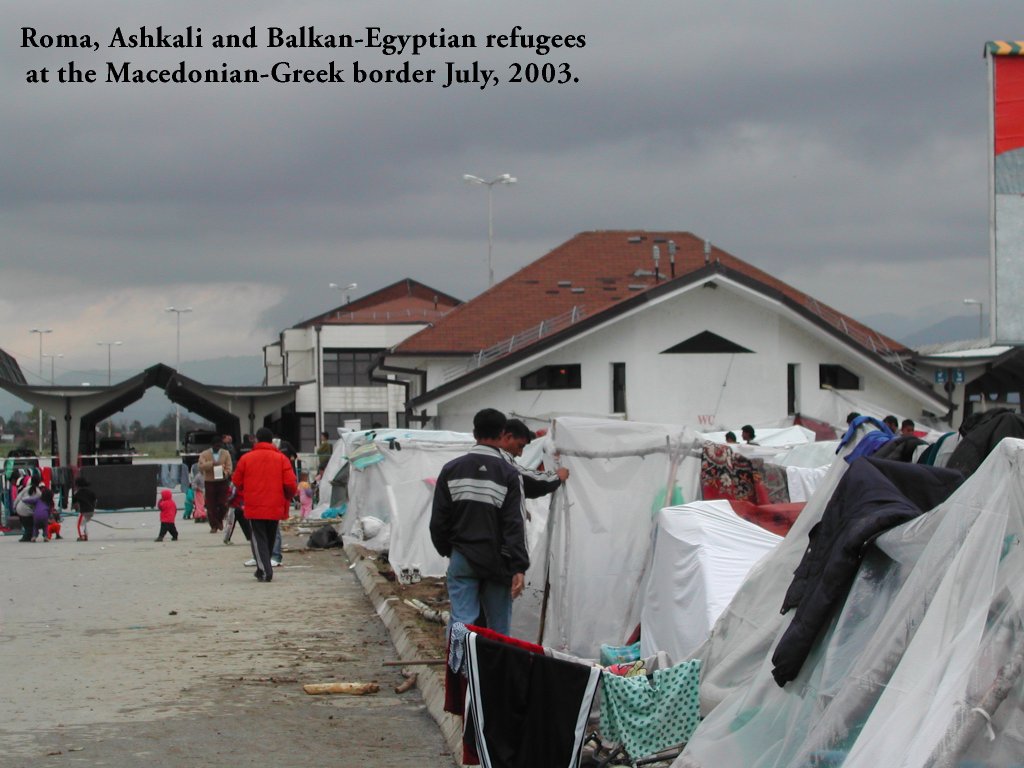The Winds of Discrimination Must Stop
30 November 2015
As I grew up in a mixed community in Subotic in Kosovo I was aware from an early age that our Roma neighbors were discriminated against just because they were Roma. In some cases our Roma neighbors were better educated than the non-Roma but that did nothing to change the negative perceptions of the majority. My faith in the rule of law and my belief that it can be properly applied to stop discrimination was first shaken by events in Kosovo which followed the adoption of UN Security Council Resolution 1244 and the cessation of hostilities in June 1999.

Weeks of threats and harassment of my family came to a head when several Albanians and KLA soldiers in uniform surrounded our home around noon on June 28, and told us we had to leave Kosovo and go to Serbia, as this territory was now “Greater Albania.” Three weeks after we were forced to leave I found out my house had been burned to the ground. The collapse of the rule of law in Kosovo and the failure of the international community to fulfill its duty to protect meant that I became a refugee.
In my years of ‘forced migration’ I never lost my sense of the importance of the law, and my pursuit of justice took me right up to the European Court of Human Rights, but my experiences in those years disappointed me. Because experience showed me just how authorities and people have no respect for the law, especially when it comes to Roma, for it’s as if anti-Roma discrimination is just blowing in the wind.
The very need to create policies specifically for Roma is because the states have failed in the most basic promise of democracy – to treat all citizens equally. These policies have changed nothing: local and national governments use EU money to make projects while the winds of discrimination continue to blow harder all the time.
In 2005 eight countries signed up to the Decade of Roma Inclusion; today after 10 years the situation of Roma is worse than it was. In the Czech Republic, Hungary and Slovakia the governments committed to ending school segregation back in 2005 – ten years later there is still segregation. These commitments were on paper only. In Slovakia today many Roma don’t even have access to clean drinking water. Romanian authorities are still evicting Roma; just because someone needs a particular piece of land Roma are banished to garbage dumps. These are the very same countries that signed up to the Decade promising to close the gap between Roma and non-Roma in 2005, and then in 2012 signed up to the EU Roma Framework for National Roma Integration Strategies up to 2020.
It is no good to wait until 2020 to see what happens. It is time for Roma activists to wake up, to move beyond national integration strategies and calls for social inclusion; it is time to develop a political agenda that demands respect, recognition and civil rights for Roma as full and equal citizens. If governments take steps to exclude Roma, there must be a mobilized response to demand democracy. Despite appearances, democracy is critically lacking, because if we had fully realized democracies, Roma would not have the harsh winds of discrimination blowing full in their faces in the 21st Century.
When I learned that each country had to develop a national integration strategy I thought YES! Another strategy, another scapegoat! For when the strategy fails, the blame will fall on the Roma. My question is that if these governments, as a precondition to their strategizing, do not respect and guarantee your constitutional rights as a citizen in the first place, how will a national strategy to integrate you damp down the winds of discrimination?




